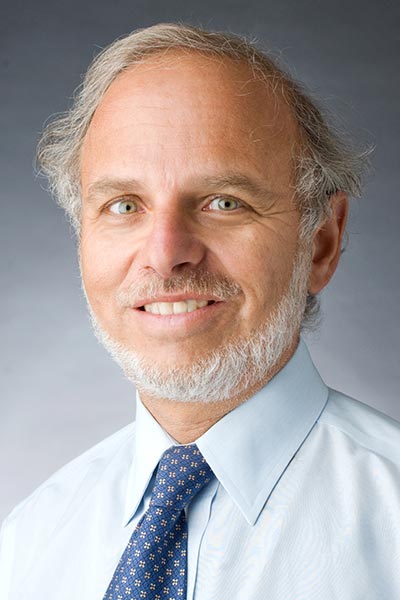Major symposium will focus on shared risk factors for cancer, cardiovascular disease, and metabolic disease
Cardiovascular disease, metabolic disorders, and cancer are leading causes of morbidity and mortality worldwide. New appreciation and understanding of shared risk factors can be leveraged to reduce risk across these connected diseases, at the population level as well as on an individual basis.
The major symposium Addressing Shared Risk Factors for Cancer, Cardiovascular Disease, and Metabolic Disease will focus on novel and exciting data-driven insights regarding shared risk factors for cancer, cardiovascular disease, and metabolic conditions—obesity, nicotine addiction, and suboptimal dietary patterns. The session will be Monday, April 8, from 12:30 – 2 p.m. PT, in Room 28 on the upper level of the San Diego Convention Center.

Michael N. Pollak, MD, Alexander Goldfarb Research Chair in Medical Oncology and director of the Division of Cancer Prevention at McGill University, is chairing the session.
Pollak said, “At least a quarter of all cancers that are diagnosed today could have been prevented. Knowing this, we can take actions to lower the cancer burden globally, because this data applies not only to Western countries, but all around the world. This does not imply that every cancer can be prevented, but the proportion that can be prevented is unexpectedly large.”
Pollak added that wherever possible, reducing the burden of disease by prevention is preferred to treatment.
“This is true not only for populations, national health systems, and insurance companies, but also for individuals,” he said. “Even patients who have successfully undergone curative therapy would rather have had their disease prevented than cured, so it is as important to explore ways to minimize risks as it is to develop new therapies.”
Pollak noted, “We are now aware that many of the interventions that can lower cancer risk and prevent at least a quarter of all cancers also lower risk of heart disease and diabetes. That makes it even more imperative, from a total health perspective, to leverage recent discoveries to design interventions that mitigate the risk of multiple conditions.
“Science is telling us that compartmentalized approaches to prevention of individual diseases can result in underestimation of the benefits of addressing shared risk factors,” he said. “Furthermore, we see that there are certain areas of convergence in research regarding cardiovascular, oncologic, and diabetes risk, including the roles of the microbiome and deregulated inflammatory processes.”
Pollak’s presentation will focus on obesity. He said, “We’re going to talk about the new anti-obesity drugs, the incretin-mimetics, and their impact on cancer risk reduction. While there is much interest around these drugs from a cosmetic benefit perspective, we are very interested in the idea that the control of obesity with the help of these drugs may have a substantial benefit in lowering the risk of obesity-related cancers.”
Research shows that obesity is a risk factor for several cancers, including colorectal, endometrial, pancreatic, and ovarian cancer, and obesity-related cancers constitute over a quarter of the global cancer burden.
“The benefits of these drugs—for glycemic control in diabetes and reducing risk of major cardiovascular events and heart disease complications—are known. Another frontier, which we are going to emphasize in this session, is the potential health benefits of these drugs in mitigating risk of obesity-related cancers,” Pollak said.
Scott Vrieze, PhD, associate professor of psychology at the University of Minnesota, will speak about new data on the molecular biology and mechanistic underpinnings of nicotine addiction, particularly on insights on why individuals who smoke find it hard to quit. Attendees can look forward to hearing about how molecular/genetic insights into nicotine addiction can inform new strategies to avoid tobacco use and mitigate cancer risk, cardiovascular disease risk, and reduce risk of certain complications of diabetes.
Edward L. Giovannucci, MD, ScD, professor of nutrition and epidemiology at the Harvard School of Public Health and associate professor of medicine at Harvard Medical School, will speak about optimized diets that can inform risk reduction for cancer, as well as cardiovascular and metabolic disease. Pollak noted that discussion of data-driven analyses of optimum diet for overall health is important, as this is an area that is often suffused with disinformation and inaccuracies.
Pollak stated that it is important to recognize that even though valuable interventions exist to significantly reduce the risk of multiple chronic diseases, including cancer, these are not strategies that eliminate risk. Nevertheless, optimal lifestyle interventions can significantly lower risk of cancer, heart disease, and diabetes by at least 25 percent, which translates to millions of individuals avoiding an unwanted diagnosis.
More from the AACR Annual Meeting 2025
View a photo gallery of scenes from Chicago, continue the conversation on social media using the hashtag #AACR25, and read more coverage in AACR Annual Meeting News.

